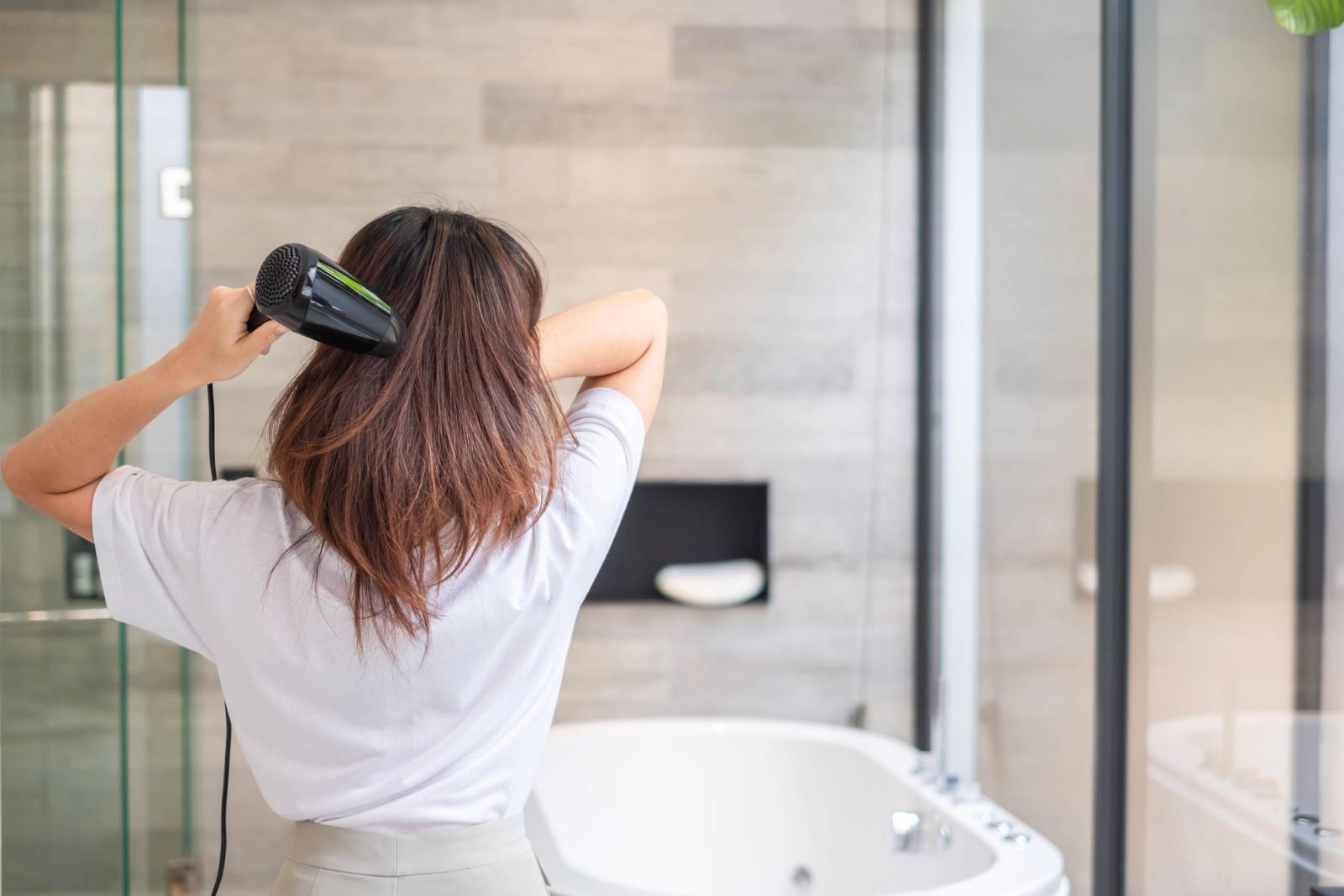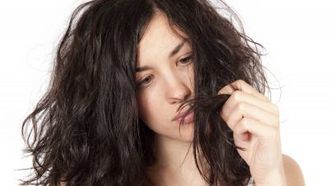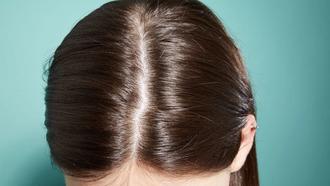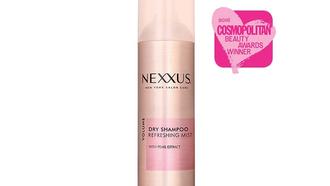The main causes of hair loss in women…and how to treat them

Anybody who has dealt with hair loss will know how much it can negatively affect your confidence on a day-to-day basis. An important thing to remember is that you’re not alone. Far from it, in fact, because trichologists believe noticeable hair loss is something that can impact around half of all women.
But what exactly causes hair loss? It could be several things, from stress or a vitamin deficiency to hormones and even excessive heat styling. If you’re currently dealing with hair loss, the first thing to focus on is staying calm, as added stress can exacerbate it.
Secondly, understand that there are two main types of hair loss. First, telogen effluvium, which affects people after severe stress and most often impacts hair on the top of the head. The second type is female pattern hair loss, which is more common. A telltale sign of female pattern hair loss is when hair thins over the head and on the sides.
It’s important to speak to your doctor to determine the medical cause of your hair loss and to discuss all of your treatment options in depth, especially if over-the-counter products aren’t working as they should.
Once you’ve identified what’s causing your hair loss, here’s how you can work to counteract each of the main causes of hair loss…
Treating styling-induced hair loss
Did you know some hair styles can lead to hair loss? If you’re regularly wearing your hair in tight ponytails, braids or cornrows, you could be damaging the follicles and causing traction alopecia. The best solution for this is to ensure you’re giving your hair and scalp a break from tight styles as often as possible. Overusing heat tools can cause hair to break and fall out, too. If you’re going to be styling your hair, heat protection is a must-use first step in your routine. Try Nexxus Prep & Protect Leave-In Spray, a lightweight leave-in protectant that helps lock in hair’s natural proteins to strengthen it from environmental and styling stressors. It’s also wise to skip heat tools in favor of letting your hair air dry as often as possible.
Treating coloring and bleaching induced hair loss
Coloring and bleaching your hair can cause protein loss in your hair. Coloring your hair can make it dry and brittle and could lead to hair feeling thinner or breaking. Temporary hair loss after bleaching is common. Known as telogen effluvium, it’s caused by the bleach penetrating underneath hair follicles which harms the skin’s barrier, causing irritation. Using a damage repair shampoo can heal signs of damage and strengthen your hair. Nexxus Keraphix Shampoo with Keratin Protein for Damaged Hair and Nexxus Keraphix Conditioner with Keratin Protein for Damaged Hair can give you stronger and visibly healthier hair after just one use.
Treating postpartum hair loss
The body goes through a lot during and after pregnancy, and postpartum hair loss is a very common side effect. It usually happens around three months after giving birth, and lasts around six months. While there are no specific treatments, trichologists suggest using a volumizing shampoo and conditioner. Also ensure you’re as gentle as possible with your hair and that you use heat tools on the lowest setting.
Treating hormonal hair loss
Hormones can play a part in hair loss for some women, which means many notice hair becoming finer around menopause. This is down to hormonal changes that lead to hair growing more slowly, falling out more easily while hair follicles shrink. A good first port of call in this case is to request a hormone test from your doctor. Then you can come up with a treatment plan together based on your specific situation. For a mild, everyday solution, try a strengthening shampoo and conditioner – like Nexxus Unbreakable Care Anti-Breakage ShampooandUnbreakable Care Thickening Conditioner. These formulas use protein science to strengthen fine hair and protect it from breakage, leaving your hair feeling thicker and fuller.
Treating stress-related hair loss
If you’re wondering whether stress causes hair loss, the simple answer is yes, it can – or at least, it can contribute to it. The most effective solution is to identify and manage the causes of your stress as much as you can. In many cases, stress-induced hair loss can improve with stress-reduction techniques, such as meditation, deep breathing work, mindfulness or exercise.
Be sure to read all product descriptions before purchasing and labels before use to ensure product is used appropriately for desired result.




